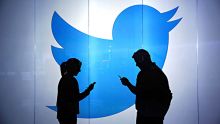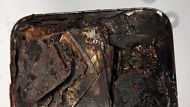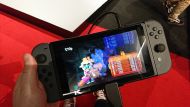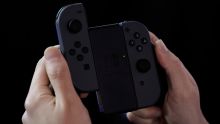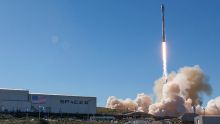SEOUL: Samsung Electronics Co Ltd scrapped its flagship Galaxy Note 7 smartphone on Tuesday less than two months after its launch, dealing a huge blow to its reputation and outlook after failing to resolve safety concerns.
Samsung announced the recall of 2.5 million Note 7s in early September following numerous reports of the phones catching fire and on Tuesday it finally pulled the plug on the US$882 ($A1168) device in what could be one of the costliest product safety failures in tech history.
More Tech Talk Videos
Man sues after Samsung Edge explodes
An American man is suing Samsung after he was badly burned when a S7 Edge exploded in his pocket.
The decision to scrap the Note 7 came after fresh reports of fires in replacement devices prompted new warnings from regulators, phone carriers and airlines.
"(We) have decided to halt production and sales of the Galaxy Note 7 in order to consider our consumers' safety first and foremost," the South Korean firm said in a filing to the Seoul stock exchange.
Samsung said earlier it asked all global carriers to stop sales of the Note 7s and the exchange of original devices for replacements, while it worked with regulators to investigate the problem. The company is offering to exchange Note 7s for other products or refund them.
Samsung's decision to pull Note 7s off the shelves not only raises fresh doubts about the firm's quality control but could result in huge financial and reputation costs.
Analysts say a permanent end to Note 7 sales could cost Samsung up to US$17 billion (A$22.5 billion) and tarnish its other phone products in the minds of consumers and carriers.
Investors wiped nearly $20 billion off Samsung Electronics' market value on Tuesday as its shares closed down eight per cent, their biggest daily percentage decline since 2008.

"This is the first time that I have seen a product recall go this badly wrong," financial analyst Richard Windsor said in a note to clients. "When it comes to the damage that it will do to Samsung's brand, we are in uncharted territory".
The premium device, launched in August, was supposed to compete with Apple Inc's latest iPhone for supremacy in the smartphone market. Well received by critics, its first problem was a shortage as pre-orders overwhelmed supply.

But within days of the launch images of charred Note 7s began appearing on social media, in the first sign that something was seriously amiss with the gadget.
"This has probably killed the Note 7 brand name - who knows if they'll even be allowed to re-release it," Edward Snyder, managing director of Charter Equity Research, said before Samsung announced it was halting sales and production of the smartphone.

The South Korean firm did not comment on whether it had identified the cause of the fires in the replacement devices, although officials in Seoul said it was looking at several possibilities including the batteries.
"It is more difficult to analyse the cause of the accidents this time because of various patterns of the accidents," an official with the Korean Agency for Technology and Standards, which met with Samsung and experts on Monday said.
China's quality watchdog said Samsung would recall all 190,984 Note 7s sold in the mainland.
The US Consumer Product Safety Commission said Samsung was making the right decision by halting sales and exchanges of the device.
"No one should have to be concerned their phone will endanger them, their family or their property," CPSC Chairman Elliott Kaye said in a statement.
The US Federal Aviation Administration and South Korea's transport ministry added their voices to concerns from the aviation industry, saying no Note 7s should be used or charged inside airplanes.
Verizon Communications Inc, the largest US wireless carrier, said it may shift marketing away from the Note 7 heading into the critical holiday selling season.
"We have the new iPhone, we're about to launch the new Google Pixel, which is exclusive to us. We've got great phones from Motorola as well," Verizon spokeswoman Kelly Crummey said.
"I think you'll see our marketing focused on those devices because there is certainty on those at this time."
Reuters
